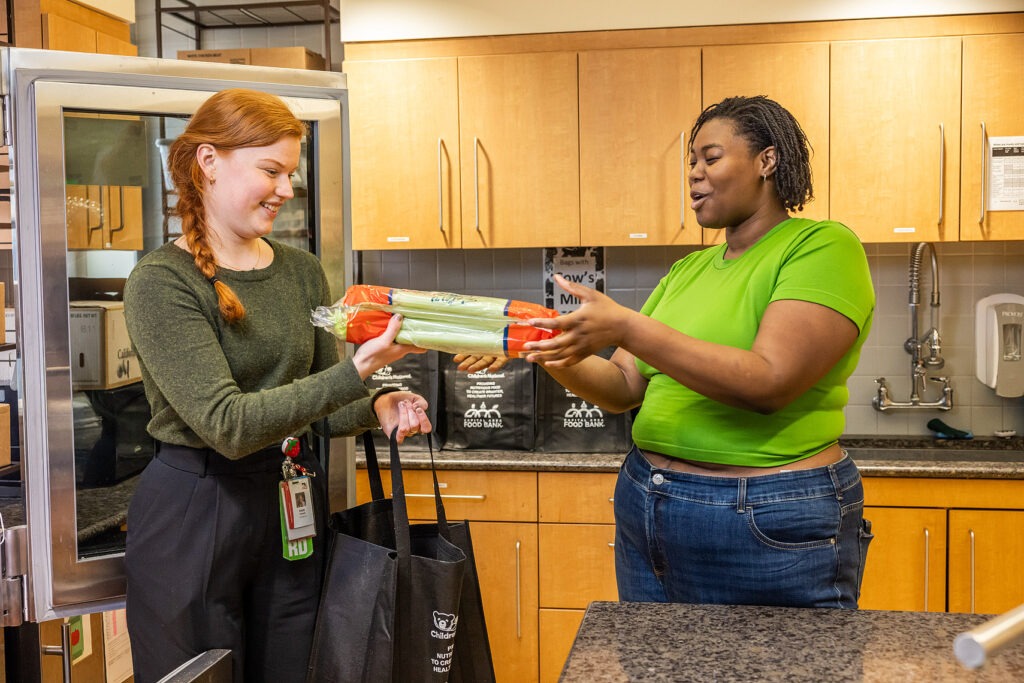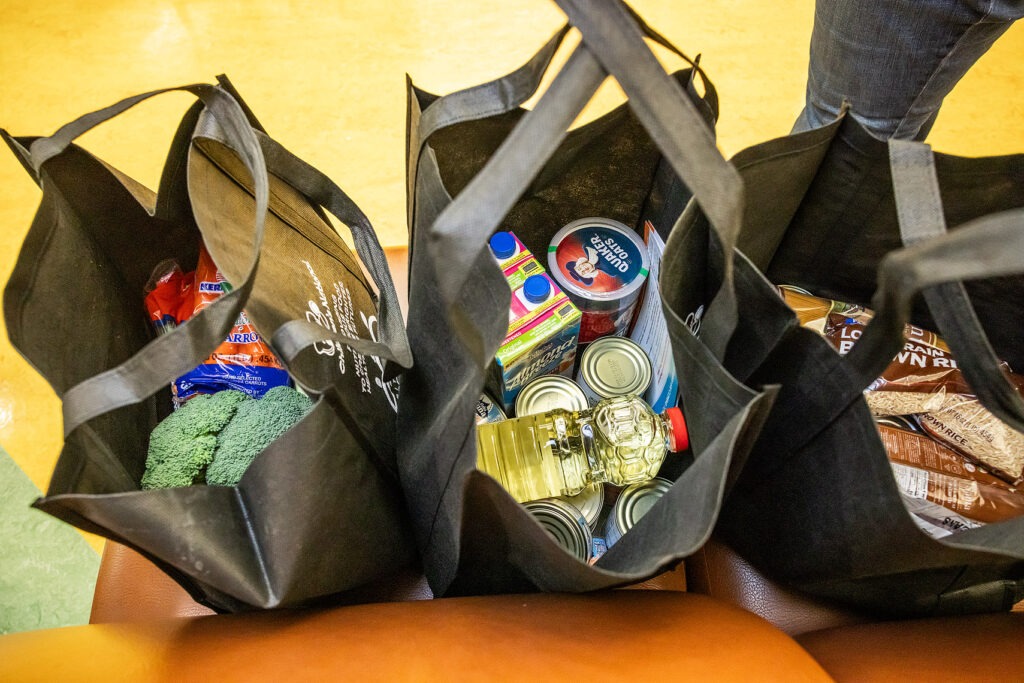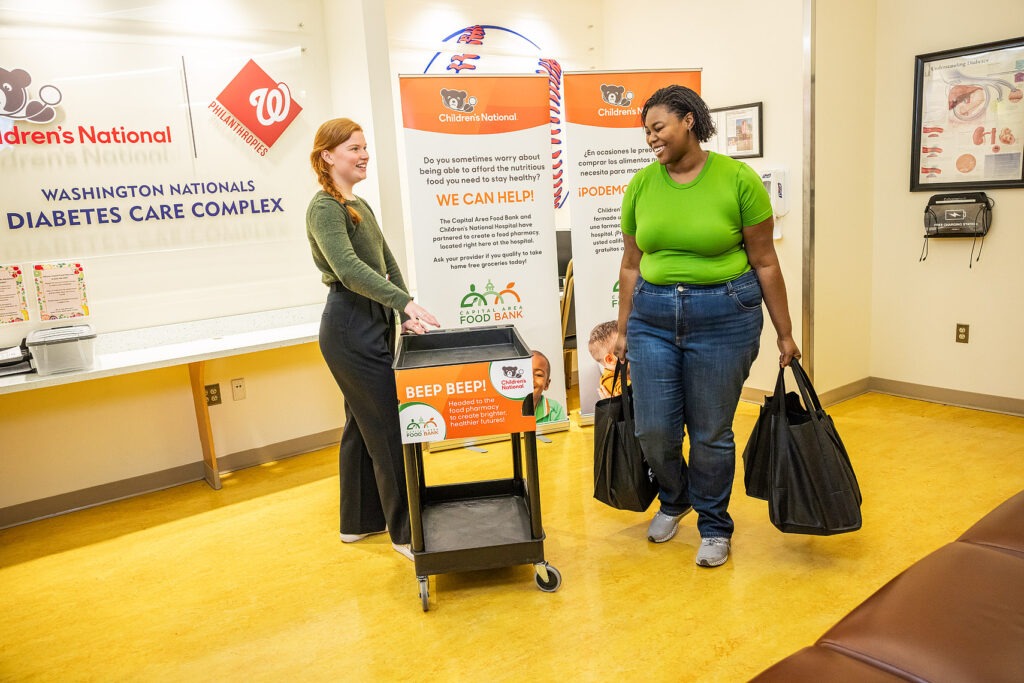Iman has a recipe for everything.
During a visit to the Diabetes Care Clinic at Children’s National Hospital, the 19-year-old – who has been diagnosed with prediabetes – lights up when one of the dietitians pulls out a bag of celery. Instantly, Iman describes one of her favorite ways to transform the often-overlooked vegetable into a tasty, nutritious dish.
The celery is tucked into one of three black reusable bags brimming with groceries that Iman takes home with her, thanks to a partnership between the Capital Area Food Bank and Children’s National that offers a food pharmacy to the clinic’s patients who are struggling to access enough nutritious food.

Those bags of groceries have had a major impact on Iman’s diet, empowering her to feel more in control of managing her health condition. Not only has she seen more consistency in her blood sugar levels since she started receiving groceries from the food pharmacy in September, but she also has lost weight, has more energy, and has a greater ability to focus on her cybersecurity classwork at the University of the District of Columbia.
“It took a lot of weight off my shoulders,” she says.
Before she learned about the food pharmacy at Children’s National, Iman had struggled to access enough nutritious food. The DC native grew up in an area of the city with few grocery stores, and when she moved on campus, she found more food options near her, but with prices that often exceed her budget.

“Being in an area where food is really expensive, and then the food that I need is extra expensive, it has made me feel a little bit scared at times,” says Iman, adding that during her early weeks of classes, she felt exhausted as she tried to stretch her meals.
Now she visits the food pharmacy every two to three weeks, where she receives 30 to 40 pounds of fresh produce and shelf-stable groceries. During each visit, she receives a mix of proteins, whole grains, and cooking essentials like garlic and ginger. The offerings also include items like almond milk, which are helpful for Iman, who follows a vegan diet.
“They give you a lot of food, even fresh produce, which I love because that’s one of the hardest things for me to really get my hands on,” Iman said.

Since launching two years ago, the food pharmacy at Children’s National has become a popular option for patients like Iman. Dietitians at the clinic say families increasingly have chosen to schedule their appointment at the main hospital rather than at satellite locations so they can access the groceries provided there. So far, nearly 3,200 patients have received groceries through the food pharmacy. And a new study that launched earlier this year will gather data on how consistent access to nutritious food affects health outcomes for patients with prediabetes and Type 2 diabetes.
Iman says she’s seen changes in her overall well-being since she started visiting the food pharmacy, including losing 30 pounds. An avid weightlifter, she also has noticed that she has more energy to go to the gym and to move her body.
She’s also noticed a difference when it comes to managing her prediabetes. Her blood sugar levels are more consistent day to day, and when she does need to stabilize those levels, she knows that she has foods in her pantry that can help her do so. “I feel like I can manage my diabetes, that this is something that I can like really do myself,” Iman says.

Photo credit: Rebecca Drobis

